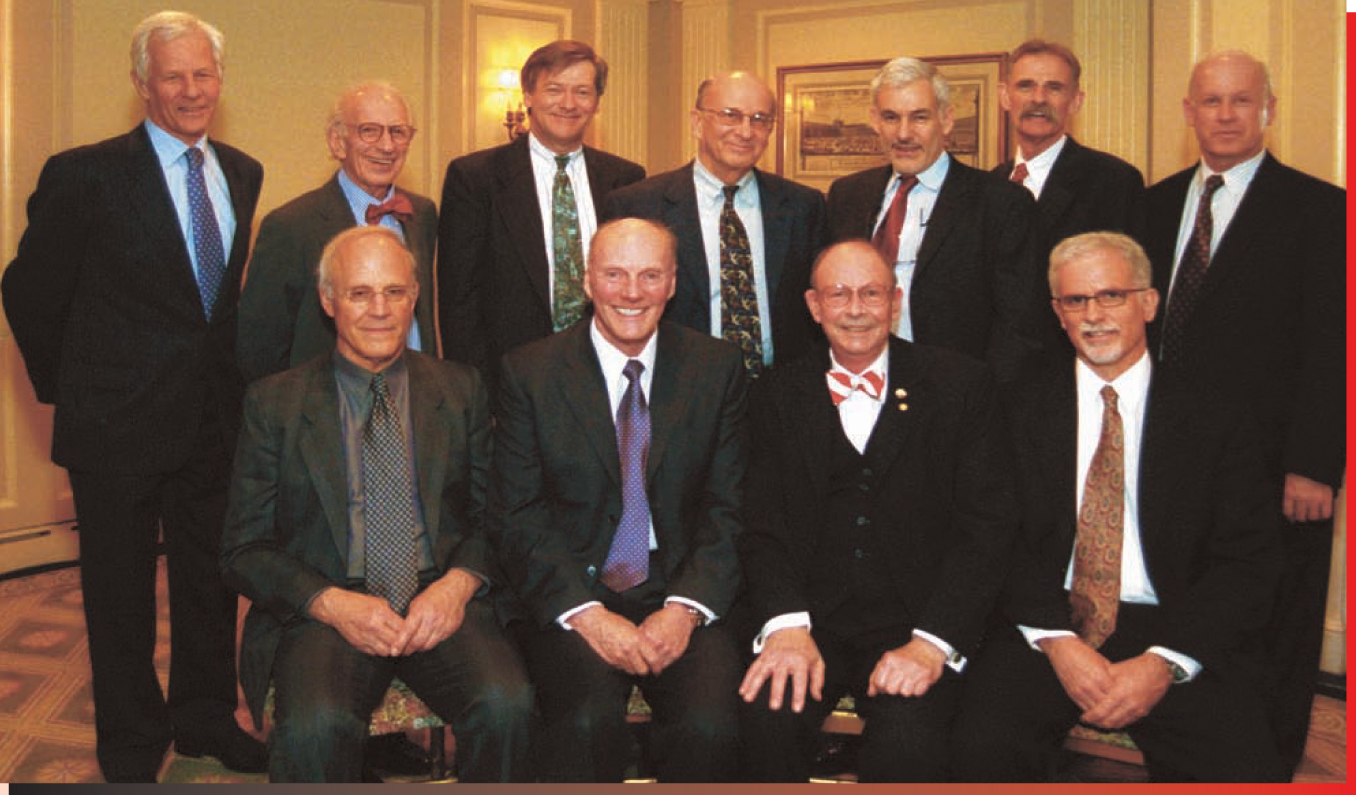Successful Entrepreneur Gives Back to Science
DOI: 10.1063/1.1768670
As a physics student at the Norwegian Institute of Technology (now the Norwegian University of Science and Technology), Fred Kavli financed his studies with money from an earlier business venture. As teenagers, he and his brother had made wooden briquettes for automotive fuel during World War II.
Nearly 50 years later, when he sold his aeronautical-, automotive-, and industrial-sensor company, US-based Kavlico Corp, for $335 million, Kavli decided to repeat the experience of his youth on a much grander scale—by using the proceeds from the sale of his business to fund basic research. In late 2000, he founded two nonprofit organizations, the Kavli Foundation and the Kavli Operational Institute. Endowed with more than $100 million, the foundation is establishing research institutes at leading universities worldwide and creating tenured faculty positions. The KOI, with an endowment of about $25 million, will support the foundation’s work by giving grants for research projects and symposia. “Eventually the two [nonprofit organizations] will control most of my assets,” says Kavli.
Two of the dozen planned research institutes already exist. The first, funded in 2001, is the renowned Kavli Institute for Theoretical Physics (KITP) at the University of California, Santa Barbara. In a 2002 ceremony, the 20-year-old institute was renamed in honor of its recent benefactor. The second institute, specializing in particle physics and cosmology, was started last year at Stanford University (see Physics Today, March 2002, page 32
This spring, after extensive consultations with scientists, the Kavli Foundation announced the launch of seven scientific research institutes—three in neuroscience, three in nanoscience, and one in cosmology, and the launch by 2007 of three $1 million prizes. “I have selected these three areas of emphasis because I believe they provide the greatest opportunity for major scientific breakthroughs and will have long-range benefits for humanity,” Kavli said. The new institutes in neuroscience are at the University of california, San Diego, and at Columbia and Yale universities. The nanoscience institutes are at Caltech, Cornell University, and Delft University of Technology in the Netherlands. A new cosmological physics institute is at the University of Chicago. The institutes are being launched with endowments of about $7.5 million each. Robert C. Richardson, founding director of the institute at Cornell says, “This institute will give us the opportunity to engage multidisciplinary groups in the exploration of emerging themes in nanoscale science and technology.”
“Endowment funding is useful for riding out the uncertainties of government funding,” says KITP Director David Gross, “but we still do have the problem of getting sufficient funds for our work.” KITP, which previously survived on university and NSF funding, received a KOI grant of $1.5 million and interest from a $5 million endowment to fund some research projects. An additional $1 million went toward a new building wing to provide space for visiting scientists, “because we can’t get NSF funds for infrastructure,” says Gross.
Three additional institutes are planned over the next few years to create a network of four institutes in each of the three research fields. Possible locations include Europe, Russia, China, India, and Japan.
The institutes are independent of the Kavli Foundation, but, says Auston, “we will be playing a role in fostering interactions between the institutes, for example by hosting conferences, international symposiums…. We hope to have a continuing relationship. We are not looking for immediate results, we’re investing for the long term.”
Kavli says he has been interested in science since his childhood, inspired by seeing the Aurora Borealis while mountain skiing. “In the stillness and loneliness of the white mountain I pondered the universe, the planet, nature, and the wonders of man—and I’m still pondering.”

Fred Kavli (front row, second from left) poses with the directors of the Kavli Institutes (clockwise from Kavli): David Gross, University of California, Santa Barbara; Hans Mooij, Delft University of Technology; Eric Kandel, Columbia University; Roger Blandford, Stanford University; Pasko Rakic, Yale University; Bruce Winstein, University of Chicago; Nicholas Spitzer, University of California, San Diego; Jeffrey Elman, University of California, San Diego; Michael Roukes, California Institute of Technology; and Robert Richardson, Cornell University.
EILEEN BARROSO, COLUMBIA UNIVERSITY

More about the authors
Paul Guinnessy, American Center for Physics, One Physics Ellipse, College Park, Maryland 20740-3842, US . pguinnes@aip.org





